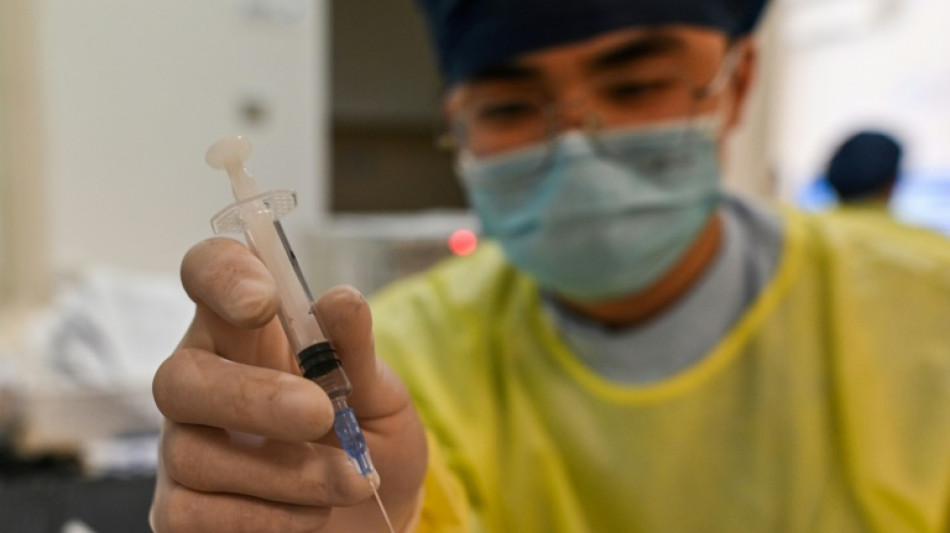
-
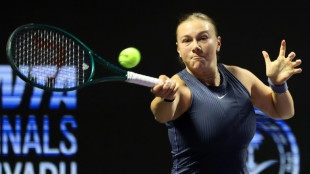 Anisimova beats Swiatek to reach WTA Finals last four
Anisimova beats Swiatek to reach WTA Finals last four
-
US Supreme Court appears skeptical of Trump tariff legality

-
 AC Milan post third straight annual profit on day of San Siro purchase
AC Milan post third straight annual profit on day of San Siro purchase
-
Angelina Jolie visits Ukrainian frontline city, media reports say

-
 UN says forests should form key plank of COP30
UN says forests should form key plank of COP30
-
Star designer Rousteing quits fashion group Balmain

-
 Mexico's Sheinbaum steps up cartel fight after murder of anti-narco mayor
Mexico's Sheinbaum steps up cartel fight after murder of anti-narco mayor
-
Attack on funeral in Sudan's Kordofan region kills 40: UN
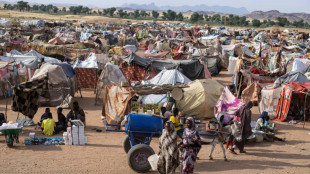
-
 Key PSG trio set for spell on sidelines
Key PSG trio set for spell on sidelines
-
Democrats punch back in US elections - and see hope for 2026

-
 BMW reports rising profitability, shares jump
BMW reports rising profitability, shares jump
-
Bolivia Supreme Court orders release of jailed ex-president Jeanine Anez
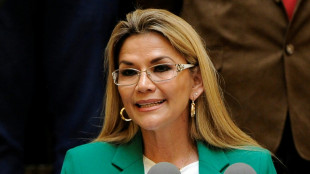
-
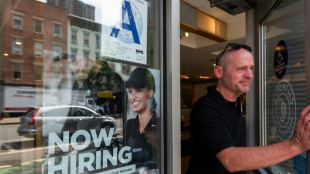 Wall Street stocks rise after positive jobs data
Wall Street stocks rise after positive jobs data
-
'Hostage diplomacy': longstanding Iran tactic presenting dilemma for West
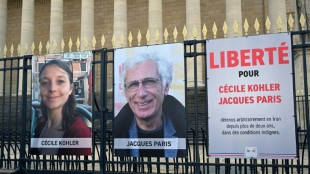
-
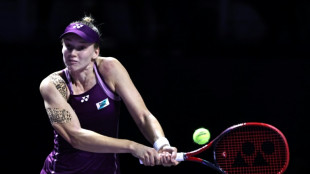 Rybakina stays perfect at WTA Finals with win over alternate Alexandrova
Rybakina stays perfect at WTA Finals with win over alternate Alexandrova
-
Le Garrec welcomes Dupont help in training for Springboks showdown

-
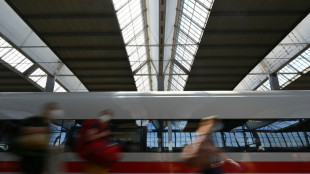 Brussels wants high-speed rail linking EU capitals by 2040
Brussels wants high-speed rail linking EU capitals by 2040
-
Swiss business chiefs met Trump on tariffs: Bern
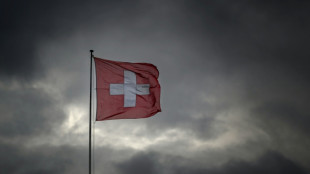
-
 Spain's exiled king recounts history, scandals in wistful memoir
Spain's exiled king recounts history, scandals in wistful memoir
-
Wall Street stocks steady after positive jobs data
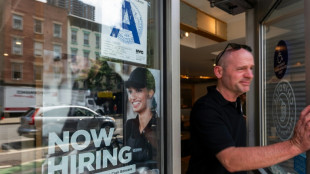
-
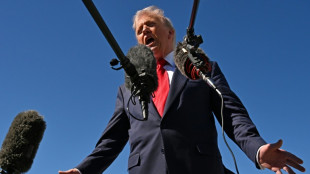 Trump blasts Democrats as government shutdown becomes longest ever
Trump blasts Democrats as government shutdown becomes longest ever
-
Indian pilgrims find 'warm welcome' in Pakistan despite tensions

-
 Inter and AC Milan complete purchase of San Siro
Inter and AC Milan complete purchase of San Siro
-
Swedish authorities inspect worksite conditions at steel startup Stegra

-
 Keys withdraws from WTA Finals with illness
Keys withdraws from WTA Finals with illness
-
Prince Harry says proud to be British despite new life in US

-
 EU strikes last-ditch deal on climate targets as COP30 looms
EU strikes last-ditch deal on climate targets as COP30 looms
-
Stocks retreat as tech bubble fears grow

-
 Shein opens first permanent store amid heavy police presence
Shein opens first permanent store amid heavy police presence
-
West Indies edge New Zealand despite Santner brilliance

-
 French pair released by Iran await return home
French pair released by Iran await return home
-
German factory orders up but outlook still muted

-
 Death toll tops 100 as Philippines digs out after typhoon
Death toll tops 100 as Philippines digs out after typhoon
-
Attack on key city in Sudan's Kordofan region kills 40: UN

-
 'No one could stop it': Sudanese describe mass rapes while fleeing El-Fasher
'No one could stop it': Sudanese describe mass rapes while fleeing El-Fasher
-
Champagne and cheers across New York as Mamdani soars to victory

-
 Medieval tower collapse adds to Italy's workplace toll
Medieval tower collapse adds to Italy's workplace toll
-
BMW boosts profitability despite China, tariff woes

-
 South Africa's Wiese wary of 'hurt' France before re-match
South Africa's Wiese wary of 'hurt' France before re-match
-
Beyond limits: Croatian freediver's breathtaking record

-
 Tottenham supporting Udogie after alleged gun threat in London
Tottenham supporting Udogie after alleged gun threat in London
-
Thunder roll Clippers to stay unbeaten as SGA keeps streak alive

-
 In appeal, Australian mushroom murderer alleges 'miscarriage of justice'
In appeal, Australian mushroom murderer alleges 'miscarriage of justice'
-
Toyota hikes profit forecasts 'despite US tariffs'

-
 Ex-France lock Willemse challenges Meafou to become 'the bully'
Ex-France lock Willemse challenges Meafou to become 'the bully'
-
Ukrainians to honour sporting dead by building country they 'died for': minister

-
 At least 7 dead after UPS cargo plane crashes near Louisville airport
At least 7 dead after UPS cargo plane crashes near Louisville airport
-
US Supreme Court hears challenge to Trump tariff powers

-
 US government shutdown becomes longest in history
US government shutdown becomes longest in history
-
India's Modi readies bellwether poll in poorest state


Challenging last mile for China's vaccine push after zero-Covid retreat
China is finally beating a retreat from its strict zero-Covid policy, but low vaccination rates among its elderly have seeded fears that the coronavirus could kill as many as 2.1 million people.
Around a third of Chinese aged 80 and above have not yet received a full course of vaccines, compared with under 10 percent of the population as a whole.
With China on Wednesday announcing the lifting of the most restrictive zero-Covid policies, experts have warned of the possibility of an uncontrolled outbreak for which China's patchy healthcare system is underprepared.
Among the most at risk are the elderly, such as 76-year-old Sun who told AFP she "wouldn't take any more jabs" after receiving a single shot in return for a gift of 100 yuan ($14) and a bag of rice.
"There haven't been cases nearby, and I rarely travel outside my local area. So it's not necessary," said the resident of eastern Zhejiang province.
Health risk analysis firm Airfinity has predicted as many as 2.1 million Covid fatalities at current immunity levels.
The company modelled its projections on an outbreak in Hong Kong this year -- the fifth wave of the virus in the city -- when vaccine hesitancy among older people was a major factor in the high death toll.
Of the more than 10,500 deaths in that wave, 67 percent were unvaccinated.
And more than 95 percent of the dead were aged 60 and above, according to the government. The median age was 86 years.
- No mandate -
Beijing's hardline pandemic policy has seen entire cities locked down, children separated from their parents in quarantine, and residents forced to get daily PCR tests to go about their day.
But China has been reluctant to implement a vaccine mandate, instead offering enticements -- from shopping vouchers to free dim sum -- to try and nudge people to get shots.
An attempt in July to impose a jab mandate to access public spaces in the capital Beijing was swiftly abandoned after a strong backlash in a public traumatised by domestic vaccine scandals in recent years.
That policy U-turn was likely "the result of direct intervention from a central leader", Yanzhong Huang of the Council on Foreign Relations wrote then, noting that other unpopular measures were not overturned.
The zero-Covid strategy, which the ruling Communist Party was committed to at the time, "tends to marginalize the role of vaccines in policy implementation", he said.
And unlike in other countries where elderly citizens were prioritised for vaccinations, China's initial push in 2021 mainly targeted employees in "high-risk" industries, later expanding to the working-age population.
Officials have vowed to boost immunisation rates among stubborn seniors, but "substantial improvement" is needed to guarantee supply and promote uptake, said Xi Chen, associate professor at the Yale School of Public Health.
- Distrust, complacency -
Ben Cowling, chair of epidemiology at Hong Kong University's School of Public Health, said a persistent lack of clear guidelines has left seniors uncertain about the safety of vaccines.
Further, China's longstanding approach towards outbreaks and relatively low case numbers have bred complacency about the likelihood of catching Covid.
Under the zero-Covid policy, "the perceived benefit of vaccination is still quite low", Cowling told AFP.
"If you aren't likely to get infected... you may not benefit from vaccination."
Officials have also been hesitant to push too hard.
"There is always the fear of reprisals," Singapore-based infectious diseases expert Leong Hoe Nam said, noting a history of confrontations between patients' family members and doctors in China after deaths or medical complications.
Fixing the problem "requires the government to invest in building trust with the Chinese people", said Nancy Qian, a China policy expert at Northwestern University.
Local governments need to produce "easy-to-understand publicity materials" and lean on family members to encourage vaccine uptake among the elderly, China's State Council said last week.
A Beijing resident surnamed Tian said her elderly parents and in-laws readily got their shots after seeing neighbours do the same.
"If a lot of people you know are all lining up to get the vaccine, then you probably won't be too worried," she said.
- Homegrown vs foreign vaccines -
Even if China manages to close the immunisation gap, there are persistent doubts about the long-term effectiveness of homegrown vaccines.
Beijing has so far refused to greenlight foreign vaccines such as the mRNA-based shots from Pfizer-BioNTech and Moderna for public use.
"Nationalism plays an important role," Huang, J. Stephen Morrison and Scott Kennedy wrote in a commentary on China's zero-Covid policy for the Center for Strategic and International Studies.
That, they said, "means Western solutions in the form of Western-owned mRNA vaccines and antivirals are out of bounds".
Studies have suggested that Chinese jabs -- developed using older technology -- offer less effective long-term protection and prevent fewer severe cases and deaths than foreign mRNA shots.
But that does not mean Chinese vaccines are not helpful.
A Hong Kong University study this year found that three shots from China's Sinovac provided "very high levels of protection against severe outcomes", including in people aged 60 or above.
While three doses of domestic vaccines will "effectively minimise" deaths, said Yale's Chen, China should also offer mRNA jabs to boost long-term immunity.
T.Bondarenko--BTB




